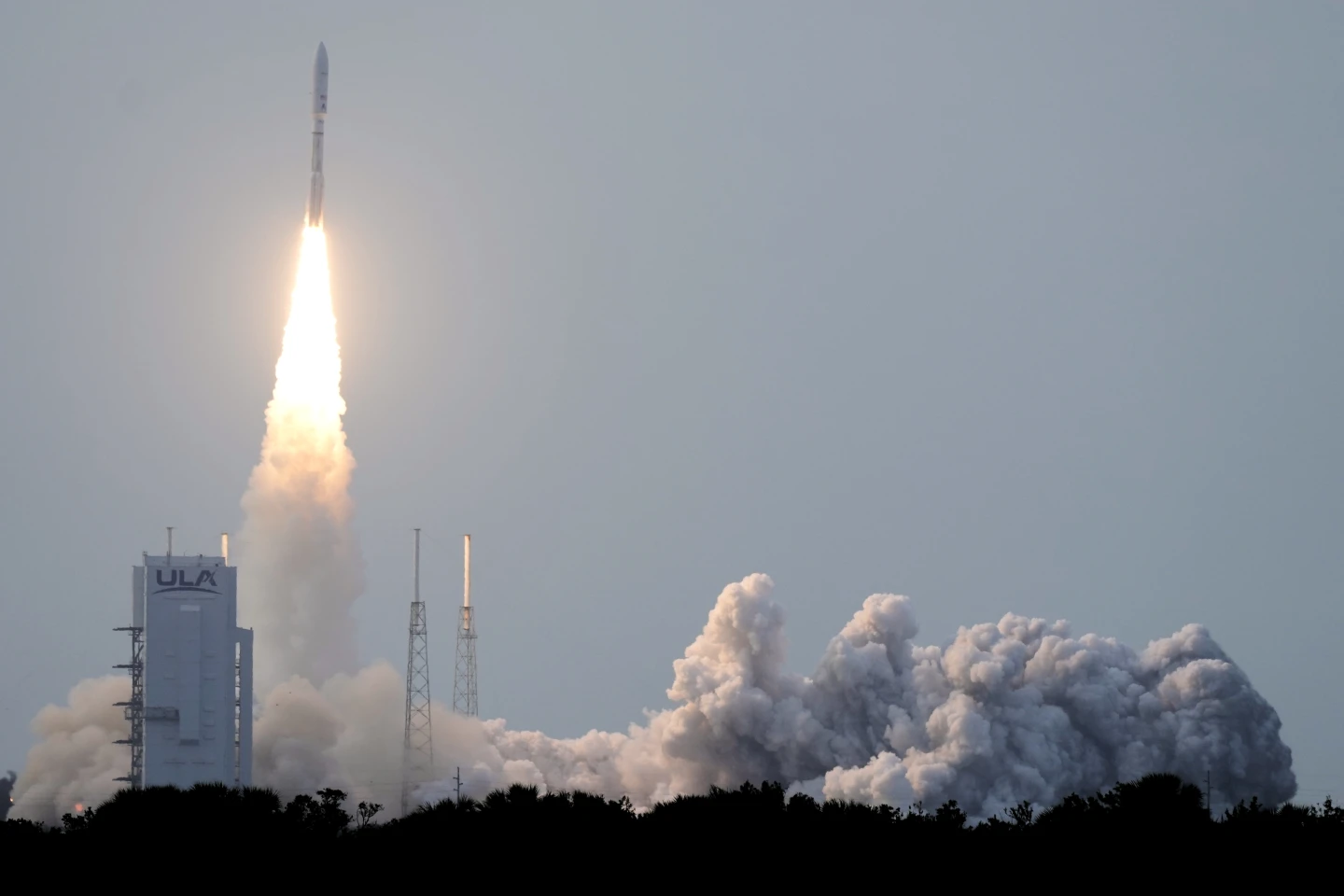Amazon’s first batch of internet satellites rocketed into orbit Monday, the latest entry in the mega constellation market currently dominated by SpaceX’s thousands of Starlinks.
The United Launch Alliance’s Atlas V rocket carried up 27 of Amazon’s Project Kuiper satellites, named after the frigid fringes of our solar system beyond Neptune. Once released in orbit, the satellites will eventually reach an altitude of nearly 400 miles (630 kilometers).
Two test satellites were launched in 2023, also by an Atlas V. Project officials said major upgrades were made to the newest version. The latest satellites also are coated with a mirror film designed to scatter reflected sunlight in an attempt to accommodate astronomers, reports AP from CAPE CANAVERAL, Fla.
Stargazers oppose the fast-growing constellations of low-orbiting satellites, arguing they spoil observations. Others fear more satellite collisions.
Meanwhile Xinhua says, Amazon launched the first batch of satellites for its “Project Kuiper” on Monday, marking a key step in the company’s efforts to expand global broadband access.
The mission, codenamed “KA-01,” represents the beginning of Amazon’s plan to deploy a constellation of over 3,000 satellites in low Earth orbit, aimed at delivering high-speed, low-latency internet access to customers and communities worldwide, Xinhua from LOS ANGELES adds.
Project Kuiper, a subsidiary of the online retail giant founded by Jeff Bezos, is playing catch-up with Starlink — SpaceX’s sprawling network of internet satellites that has reshaped the sector and handed Musk significant geopolitical clout.
The $10 billion initiative plans to deploy 3,200 satellites into low Earth orbit (LEO satellites)– the region of space up to 1,200 miles (1,900 kilometers) above the planet — with hopes of going live later this year.
Pricing has not yet been revealed, but Amazon has pledged it will align with its reputation as a low-cost retailer.
With Monday’s launch, Amazon enters a fast-growing field that includes not just Starlink but other emerging players in the satellite internet race.
SpaceX launched the first batch of Starlink satellites in 2019 and now boasts more than 6,750 operational units, serving over five million customers worldwide — by far the sector’s dominant force.


